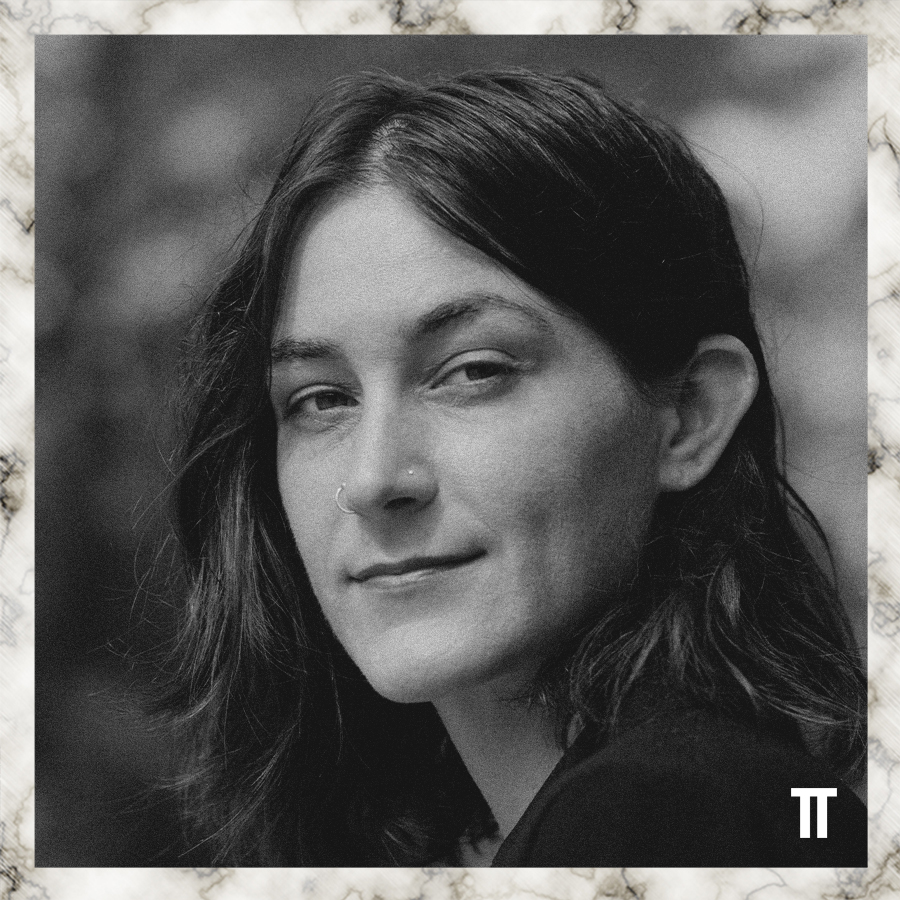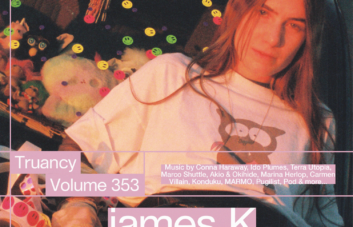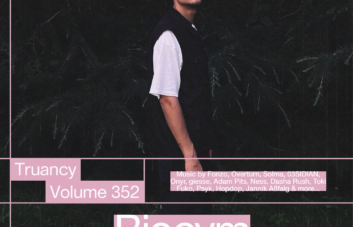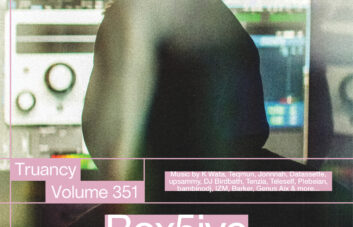New York’s DJ Voices is drawn towards the unexpected. We spoke at a Japanese restaurant in Dublin (where she’d later play for the Pear crew to a crowd of Halloween revellers and well-dressed 20-somethings), and she pointedly said that she would play a whole set of up-tempo tracks slowed down using the CDJ’s wide function (which can slow or speed up the track as much as 100%). It’s a tactic the Working Women co-founder makes use of at several points during her Truancy Volume, which manages to feel both like a club set and a soundtrack mix made just with you, the listener, in mind. Having recently watched a lengthy interview with DJ Voices conducted by Willie Burns for his Talk Radio series, we opted against rehashing her total backstory here. Instead, we talked about her current European tour, her work as booker for New York club Nowadays, her goals as a DJ and the music in her record bag.
Where to start… “You tell me!” You’re in the middle of a tour, how’s that going? “It’s going well, this is the second weekend. Before this was Copenhagen, Amsterdam and Berlin. Amsterdam was during ADE, which was quite full-on and intense.” Was that a b2b? “Yeah, I played back to back with Cleveland. For the Hivern Discs things, which was really fun.” How did that come about? “It was actually kind of last minute. I played with Cleveland at a small club in New York called Jupiter Disco, I had him for my night, Blue Enough. After that, he asked ‘will you be in Amsterdam on this tour for that weekend?’ I said yes, he was like, ‘let’s play this back to back.’”
Cool. What’s Blue Enough? “That’s my party. Have you ever read Autobiography of Red by Anne Carson?” No. “You should. It’s an incredible book. I read it when I was 18, and it still comes back to haunt me. But there’s this line in it where she’s actually talking about lightning, sort of unrelated, but she says ‘blue enough to begin a world of its own’. And that line always really stuck with me. Mostly because of my relationship to depression and everything like that. I always thought of the line, well I used to think of my sadness and people being depressed as like a very world-building thing, sort of a way to begin anew…” Character building? “I mean that’s romanticising depression a bit. But yes, in a way, when you fucking hate everything, you know what you don’t want. And so you try to make your world a better place, basically. I always felt like my relationship to sadness was not always a bad thing, I had no such illusions about life being great, no rose-tinted glasses. Anyway, the real point to all of this is that the first long-term relief I ever had from near-lifelong depression was when I began to DJ. So for me, the two are inextricably linked. And so, I also bring my relationship to my emotions, obviously, into my DJing, into my music. So yeah, I wanted to call the party Blue Enough.”
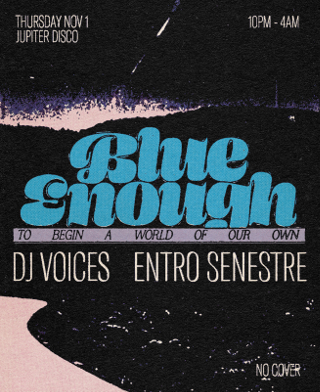
What do you aim to do with that? Is it guests? “It’s always the guest, although for a while, I thought I would have fun like playing all night. But I think the way it’s turned out with Jupiter Disco is it makes sense to have a guest. And now it’s going to move around to different venues. And I would love to be able to book more international guests, but at the moment, it’s a small, mostly locals party. It’s just a way for me to sort of still have an output or like a booking output as a DJ that’s unrelated to my day job, which is booking at Nowadays.” So, it’s kind of your own autonomy. And it’s for you, it’s not for the club. “Yeah.” And is that why you don’t have it at Nowadays? “Yeah, yeah. Also, what I usually want to do is different, I mean Nowadays is a slightly bigger room. It’s a bigger room for New York. So not always, and this is getting easier, but it is still numbers focused, we can’t take as many risks, although I think that’s starting to change. But with the parties at Jupiter Disco or sometimes at Mood Ring, you don’t really have to stress about numbers.” It’s small enough that you’re not going to look out and see an empty room. “Exactly. No one likes that. That’s not lifting anybody up.” It’s character building though. You can’t call yourself a DJ if you haven’t played to a few empty rooms! “Countless. And it’ll happen, I feel, throughout your career.”
What were the Berlin and Copenhagen parties like? “Copenhagen was really cool. I opened for DJ Nobu. He’s one of my favourite DJs. I mean, there are some similarities to what I do and what he does, but I think it’s really cool. I don’t think I would have ever been booked to open for him in New York, which is why it was really great. I think, in New York, people don’t identify me with that sound, but it’s a sound I’m really drawn to. It was a nice way to stretch out and do something different than what I do at home. And it was part of this two-location mini-festival, and then I went to the other party after and that was great too. That was my good friend from New York, Rachel Noon, and Courtesy. In Berlin it was a Monday night party at Tresor called House of Waxx.” Were you solo or were other people there? “There were three of us on the bill – me, Hadj Sameer from Trilogy Tapes and C3D-E from Acting Press. So, there are a lot of friends there. A lot of Vancouver people actually, a lot of Canadians. It was great to see them.” So you weren’t alone. “I was definitely not alone.”
So, you’re playing here tonight. What do you think you’re going to play? Or are you just going to see what the vibe is? “You’ve always got to see what the vibe is.” How do you approach foreign gigs? “Well I try to do as much research on the place as possible. Because I feel like I’m a pretty versatile, eclectic DJ, I do have quite a lot of different gigs on this tour.” By that do you mean you can play in a number of different modes rather than you’re going to play everything in one set? “A little bit of both, honestly. If you give me more than three hours, I’ll probably try to play almost everything. I think this is going to be very different from opening for Nobu obviously. Just based on what I know about the Pear crew, it will probably be a lot of house and breaky stuff. Probably nothing too hard but high energy.” Fun. “Yeah, fun. Exactly.”
What’s in your bag? “What’s in my bag? Well, I left some records in Berlin. I try to travel with four different kinds of bags. I left a huge suitcase in Berlin. I have a backpack on me now; this is like my daytime or clubbing fanny pack.” Do you wear it across your chest? “I do. is that silly?” No! It’s just very current. “Yeah, if I’m dancing, I don’t want anything around my waist. So, what’s in my record bag? Well, there’s a lot of Pear stuff that was just gifted to me today.” [Reading the sleeve of a record she pulls out] Soft to Hard, that sums up sets. “Yeah, so this is a really amazing label. Euphoric house. We went into All City today. This is a Japanese house record that’s really, really good, I hope I play it at the end of the night tonight. But in general, the way I relate to records right now is way different than I did when I first started DJing. Which was all vinyl. Now I’m super picky about what records I will buy. So, I just went straight for the Irish section at the record store, I want to get something that either I won’t get anywhere else or that I won’t come across maybe. Although I did get a Derek Carr record, he does techno sort of bleepy stuff. Then I got a few other Irish things. Other than that, it’s mostly house records. Oh, this Mood II Swing/Crustation reissue, this is one of the first tracks I ever became obsessed with with DJing, so when I saw this reissue come out, I was like, oh, yeah, I need that. I had no idea what house music was other than, oh my god Black Box, you know? Like commercial ’90s House, I had no idea what house music was other than that.” When I was 11 my neighbours did a house swap, where you would stay at someone’s house and they would stay in yours. One of the first ones they did was with a family from California, Long Beach. Do you remember La Bouche? They were like, that’s techno. “Oh yeah, that’s like people calling techno EDM, it’s the same thing, and me thinking that’s hilarious.”
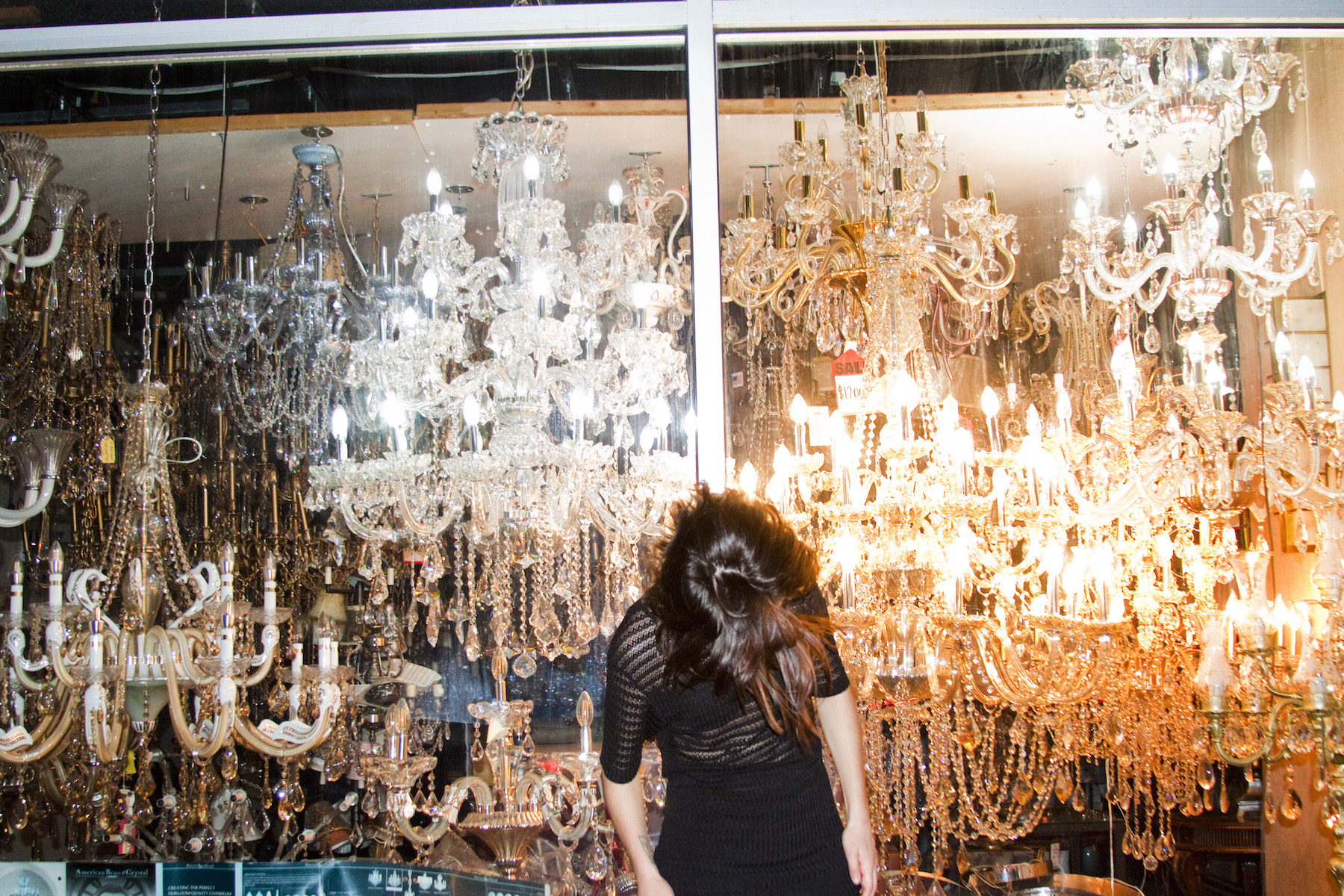
So why don’t we talk about that? Your introduction to dance music. You were into emo as a teenager? “Oh yeah, so like really into emo and indie rock and like, all the bands at that time. I really loved everything like that, I was just kind of getting my education through like chatrooms and Kazaa, and I didn’t have any friends who listened to the same music as me.” You mentioned getting the bus to some school and seeing other kinds in T shirts. “Yes, seeing art school kids in band t-shirts. I was like, ‘Oh my God there’s people in my neighbourhood, where I live, who know this music, that’s so cool’. And immediately I gravitated towards them. But dance music, no one was dancing. I remember in college, there were dance parties every weekend the first semester, I was afraid to dance.” You did dance, proper dance as a child, but it’s very different. “Well, my very first dances were these banquets we would have in gymnastics, so it’d be like family and you would do the Macarena. In high school, we went to a few parties, I couldn’t even tell you what the music was like, and I remember people would dance there, but I was not really social that way. So, it wasn’t until I went to college that I was opened up to dance music. And even then, I didn’t do any research into it. It was really when I graduated aged 22 and moved to New York.” Remind me, where did you go to college? “A really small liberal arts school called New College in Florida. It was incredible, 800 students, right on the beach, you knew everybody there. It was very academically rigorous, but also, you didn’t have grades, You had narrative evaluations instead. It was an extremely, super hippie school. And then they have these huge parties. The thing they say about Florida is the more north you go the more South you get. So, Florida is not the South, the peninsula – South Florida is more culturally similar to New York. It’s quite international – it doesn’t have as much culture but I mean yeah, North Florida is the south. So, it’s funny in that way, but then of course, growing up in South Florida bands don’t really come through. To get to Miami you would have to drive an extra 12 hours.” You see a lot of bands play in England, because there are places to go, whereas if they come to Ireland, there are maybe two or three max places they can go. “But there was tons of dance music in Miami. Maybe if I had grown up in Miami. It would be a different story.”
Why did you move to New York? “Cause I wanted to, and that was it.” No better reason. “I had always wanted to go to NYU, always. And when I was applying to college my parents were like, you have to stay in Florida. My dad was very wise, he started a prepaid fund for me right when I was born. So by staying in Florida every semester I got money back. I also had a scholarship – if you have a high enough GPA, you got a scholarship from the state. I was always really into academics, a good student.” You say that like it’s a bad thing… “So my dream was always to go to New York based on probably nothing, like a movie I’d seen, I mean, we visited New York City to see my aunt, but I think I just always felt really sort of misunderstood and culturally bored by a lot of things in Florida. I mean, we hung out in parking lots, most of the time, there was nothing to do. So, I just had this idea based on really not much that I needed to go to New York. So, I graduated from college – I studied philosophy. ‘I can go back to school or I can move to New York.’ I had nowhere to live, no job. Two of my best friends were there and my aunt was there. And I was like, I’m going up. My dad, my cat and I drove up and I went to my best friend’s couch.”
And I want to know more about – you worked in some food place? “Yeah, this place called Flatbush Farm, it was a restaurant in Park Slope. That was one of the things I did todayi.” So just for the sake of the interview, you were speaking to Willie Burns on his podcast about working in this place, you had a friend with a giant record collection, and Willie asked you for some of the seminal tracks that made you go wow, and you couldn’t think of any, so I asked you in preparation for this interview what they were… “All the Farley “Jackmaster” Funk, Midtown 120 Blues, Slam, .xtrak on peace frog. Do you remember Streetwalker, “Future Fusion”? It had like these crazy like ravey sounds, on Cititrax. Pancake, “Don’t Turn Your Back On Me”. Oh, it’s so good. And then all the Head High stuff. So, a mix of old and new. This was me, basically my first-time hearing stuff like this other than commercial 90s house on the radio. So that was what I could remember. I was trying to think deep. I feel like a lot of it is obvious, but this is formative stuff.” If it’s formative for you, it doesn’t matter how deep or not it is. “I was trying to think of deeper cuts that not everybody knows. But you know. It is what it is. So yeah, it was great. He had this massive record collection and he had everything. Like, every Low record, He’s like an artist. He taught me a lot.”
Do you have goals in terms of what you’ve done this year what you want to do next year? “The club stuff will always keep me busy. My hopes for that for next year is to be able to take risks. I mean, New York is no stranger – it’s not like great, forward-thinking music isn’t happening, but just to be able to do it in a space like Nowadays, which is slightly larger.” I mean, just coming from my perspective, it seems wild that you wouldn’t be able to do something adventurous in New York. “Yeah, and I think we are doing adventurous stuff too. But I’m just saying like, I want to like take it even further. I have so many hopes and dreams booking wise. Still so many DJs I want to book.” This time next year you’re going to be talking about booking DJs you don’t know about now. “Oh, for sure. And yeah, always trying to find new, new sounds, see where people are taking the art of DJing next. For me personally, I don’t know. I mean, I’ve said this to you before but I’m still so curious about DJing, I feel like there’s still, not just music to learn about but things to do as a DJ. I just want to keep practising. I actually haven’t sat down and thought about goals for next year. It’s sort of been taking things one step at a time and not really having enough time to sit and project into the future but I feel like that’s what this time of year is pretty good for anyway.” Maybe you can think about it on a plane some time. “Yeah. It’s so good to think about your life on the plane when you imagine you might be going down.” You’re literally in a metal tube, floating in the sky! “It’s awful. Awful.”
When was the last time you danced? “I bopped around a little bit on the dance floor last night. Oh, I danced for like four hours straight to Jane Fitz at De School on Sunday night. It was incredible.” Were there any tracks that stood out or was it all stuff you’d never heard before? “It was a lot of stuff I had never heard before, almost every track had a break in it. So, it just felt like she was building up more and more. Okay, we’re pausing again but not in a bad way.” Oh, sorry. When you say break you mean stop, not *makes breakbeat sound*. “Almost like a breakdown/build up, right?” Yeah, that whole trance sound. You mean break, not breaks. “Yeah, yeah. not breakbeat.” She is going for like a trancey sound at the moment. “Yeah, very psychedelic, it almost had a progressive vibe.” That’s the thing about prog and about trance, it’s all epic, build-up break down. “Yeah. So, there was a lot of that.”
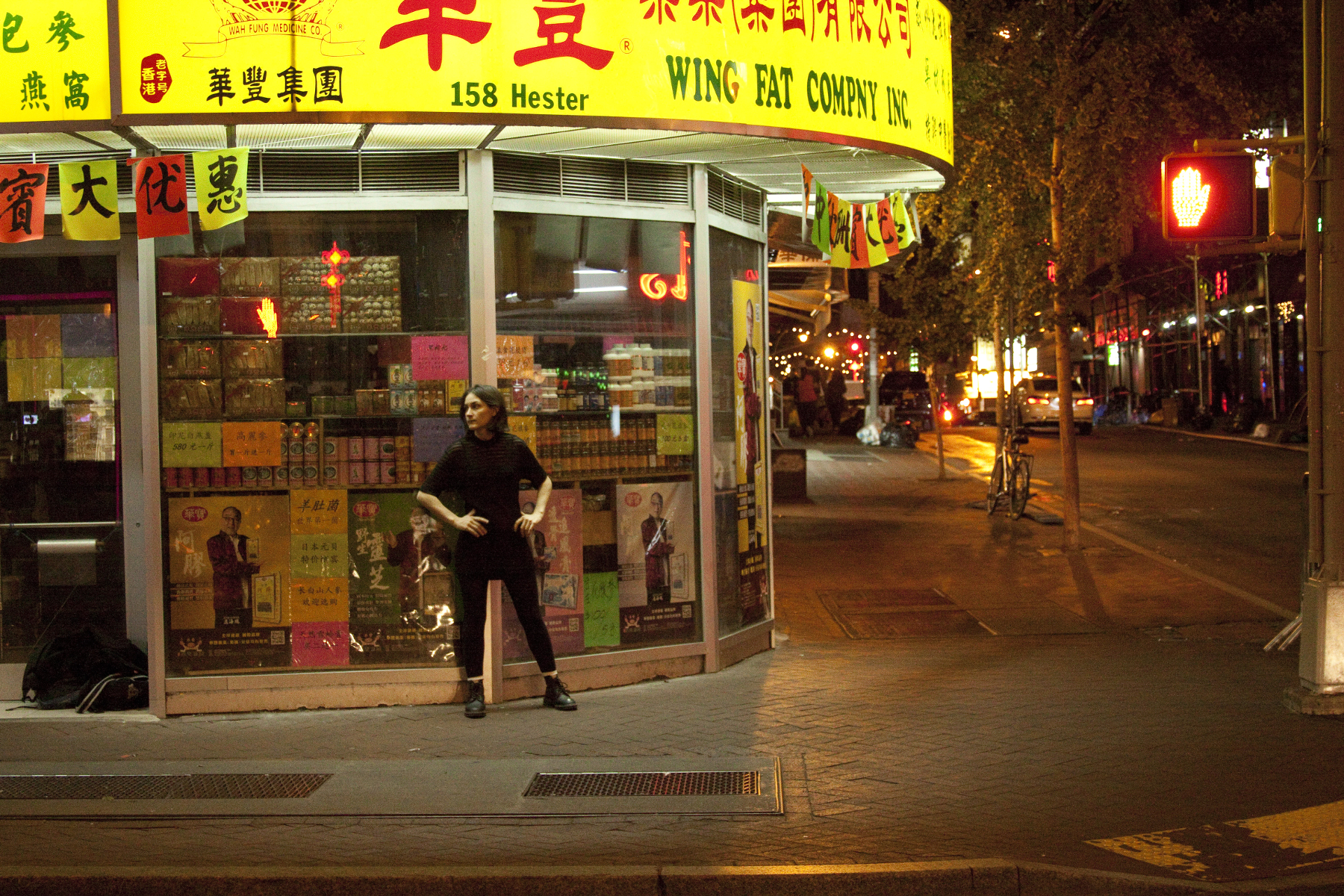
Your mix, obviously I need to talk to you about that. “Yeah. What do you think of that mix?” I liked it. “You liked it.” I liked it! What do you want me to say? ‘It’s the best thing I’ve ever heard in my life.’ “Yes, that’s the point of every mix!” What’s really funny is I was listening to it and thinking ‘I really love how slow this is’, and the very track that was playing as I thought that switched up and went into dancey mode. Not that you can’t dance to the slower stuff, it’s just it’s not four-four club banger mode. “Well that track, I played on wide for the first bit, and then it comes back.” Oh right! That’s the art of DJing. “I would play a whole DJ set on wide if I could. Yeah, it’s at like 100 bpm and it’s like 130 usually, right when that crazy drum part comes and I just took it off wide.” That’s really interesting because I honestly thought it was something that the track did. “I did that. And the second track is a trance tune on wide as well. That one’s at like 150, but in the mix it’s 100 or so.” I don’t think I’ve heard any of them, so that’s always interesting. “That’s the hope, I guess! There’s an Amazondotcom thing in there. There’s a forthcoming Doctor Jeep thing in there. Two actually.” What was going through your head when you were putting this together? “Well, to be honest, I recently received feedback that someone liked my mixes but that they felt quite podcasty. And that they had a hard time imagining what I would do in a club. And so, when I started making this mix, I was like, ‘well, I’ll show them’. And actually, the end result is exactly what I feel I often do, which is not really what I would do in a live setting – straightforward. I don’t see the point in just releasing exactly what I would play out because I feel like a recorded mixes is an opportunity to be really creative. That intro is not something I would do during a show. I still play the same song like three times in different ways.” Oh, I hadn’t even noticed! “Yeah. So for me, as a booker, it’s the opposite. When I listen to a mix, if someone makes me wonder what they’ll do, rather than giving it to me straight out, that actually piques a lot more curiosity in me. I’m like, ‘Oh, I don’t know what they’ll sound like, but I love the way they construct this mix’. I mean, in my mix, there’s an hour’s worth of like, relatively straightforward, club sounds. But yeah, I mean, I feel like I see DJs say often, it’s hard to make a mix without an audience right in front of you.”
I recently said that I often find club sets on SoundCloud really, really boring. “Yeah. I mean, I get that. I think there is something cool about listening back to a live mix and seeing what people can do. I just don’t see the point in going to prerecord and just doing what you can do in a club. You should be more creative with it.” For me… It depends. “Some people just want the bangers.” Some people just want the bangers and that’s fine. Personally, what I find most interesting is hearing a warmup set, because that’s always going to be more interesting than peak time, that’s really what I meant. And this mix. As you said, it’s not peak time. It’s not even warmup because you’re not playing with that in mind, it’s more ‘what can I do with this medium?’ “Yeah, I guess for me, it’s such a cliché, but I think about the storytelling aspect. Whenever I release a mix, I think, ‘Oh, I really hope people listen from beginning to end’, which obviously, almost no one does. So, I think about them clicking along, maybe it doesn’t sound so peak time. But if you listen to it in full, it’s actually really cool, I think. And then I always tell myself to make a peak-time mix but you’ll have to come see it at the club! I don’t know, I’m so much more rewarded by doing – it’s not to say you can’t do interesting things at peak time, it’s not that the creativity is not there. It’s just that, I don’t know, sometimes I noticed myself, if I have a record and there’s two songs I really like on the record, and I’m making a mix, for some reason I’ll always mark the more chill one as the one to go in the mix and then more high-energy one as the one to go in the club. I don’t know why, I think maybe I just struggle. I think I see it as an opportunity to play something I couldn’t play in the club. So, it’s exciting in that way.” So it’s not like you’re holding back on the banger, it’s more you’re showcasing the other one. “Especially for me in the club, I’m very sensitive, it can be really fun to drop the energy, but I want to drop the energy with intention and in a controlled way. So rather than like, ‘oops, I didn’t mean to bring it down so much’, I’m really sensitive to energy in the club. Especially as a dancer, when I hear dips in energy that are moving, to me, it’s like conducting in a way. So you conduct the energy. And a dip in energy doesn’t mean you don’t dance. It’s emotional. You have to make your brain dance too. I don’t know. I got so bored by bangers only. Honestly. I think Eris [Drew] does that really well. I mean she does everything really well but she can really take it, a song in anyone else’s hands would be like, ‘oh, maybe it’s time to get a get a drink’.” She’s doing this for a reason. “Yeah. There is a story. Because that’s what I enjoy as a dancer, that’s what I’m aiming for. My DJing is basically for what I’m interested in as a dancer, which I’ve noticed is quite different from what a lot of dancers want.”
DJ Voices: Resident Advisor, Soundcloud, Twitter, Instagram, Facebook
Cover photo by Guarionex Rodriguez Jr.
Poster design by Isabel von der Ahe

